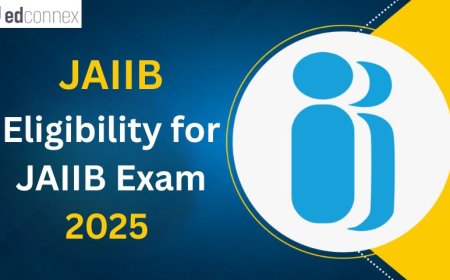KCET 2025 Eligibility: Age, Domicile & Qualification Guide
Explore KCET 2025 eligibility criteria including age limit, academic qualifications, domicile rules & other requirements for Engineering, Pharmacy & more.

The Karnataka Common Entrance Test (KCET) 2025 is the golden gateway for students aspiring to pursue undergraduate professional courses in Karnataka’s top institutions. Conducted by the Karnataka Examinations Authority (KEA), KCET offers entry into Engineering, Pharmacy, Agriculture, Veterinary Sciences, and other fields. To be eligible for KCET 2025, candidates must meet a set of strict academic and demographic criteria. Most importantly, applicants should have passed their 2nd PUC/10+2 or equivalent examination from a recognized board. For Engineering aspirants, Physics, Chemistry, and Mathematics are compulsory, while Pharmacy applicants must have Physics, Chemistry, and Biology/Mathematics. General category candidates must secure at least 45% aggregate marks, whereas reserved category candidates (SC/ST/OBC) require a minimum of 40%. These marks must be achieved in the core subjects relevant to the course. Students appearing for their qualifying exam in 2025 are also eligible, provided they submit proof of passing before counselling.
In addition to academic performance, domicile and residency rules form a vital part of the KCET eligibility process. Candidates must either be residents of Karnataka or meet one of the specified eligibility clauses. These include studying in Karnataka for at least 7 years, having parents who are Government of Karnataka employees, or being children of defense personnel or ex-servicemen stationed in the state. There are also special provisions for Kannada medium students, those from border regions, and applicants under the Hyderabad-Karnataka region reservation (Article 371J). For courses such as Agriculture or Veterinary Sciences, students must submit rural study certificates, practical experience certificates, or even physical fitness declarations. Failure to provide valid documentation at the time of counselling can lead to disqualification—even if the candidate has cleared the exam. Furthermore, it’s important to understand that some courses might require additional criteria. For example, applicants to Architecture programs need to appear for the NATA exam separately and provide valid scores. Similarly, students interested in Ayurveda or Homeopathy may need to qualify through NEET, even if they meet KCET's basic criteria. Candidates should regularly check the official KEA website and download the latest KCET 2025 brochure to ensure no requirement is missed. It is recommended that students begin collecting their academic documents, income certificates, caste certificates, study certificates, and photo ID proofs well in advance to avoid last-minute stress. Understanding and meeting the KCET 2025 eligibility conditions is the first step toward a successful career path in Karnataka’s most sought-after educational institutes.






























































































